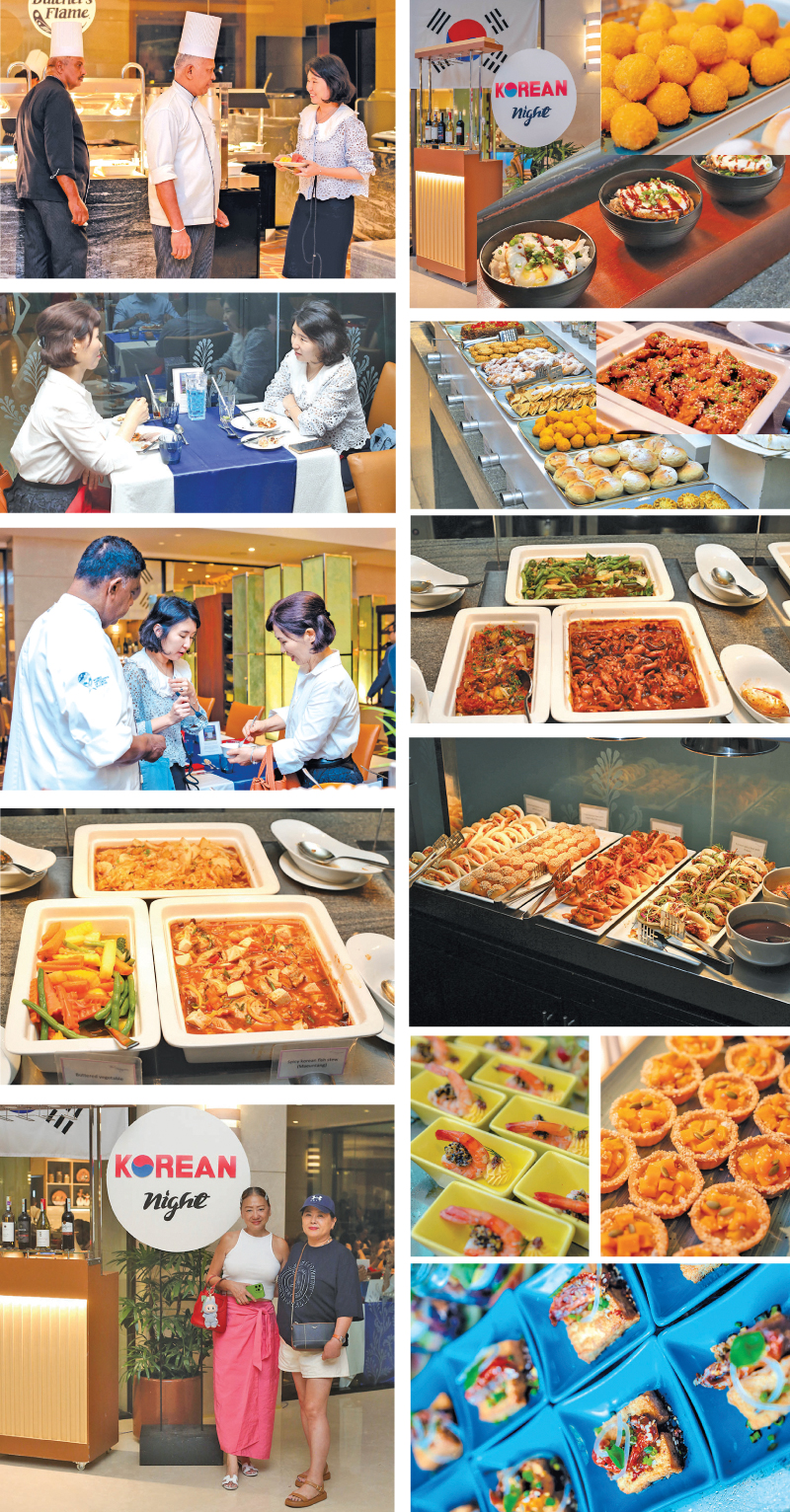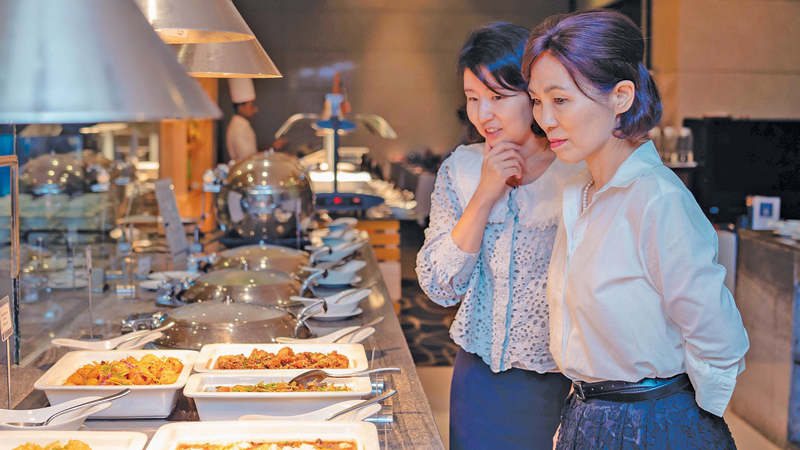This July, The Dining Room at Cinnamon Lakeside Colombo is playing host to an authentic Korean themed buffet.
Every Thursday evening the Dinning Room has an amazing spread with the vibrant flavours of Korea brought to the heart of Colombo. As part of the hotel’s regular theme night tradition, each Thursday culinary celebration of Korean heritage, with dishes carefully prepared by expert chefs comes to life.
With two Thursdays gone past, do not miss out on the two Thursdays still remaining for you to savour the Korean delights.
From 7:00 pm to 11:00 pm, guests can enjoy a dynamic spread that includes classic Korean barbecue, bulgogi, bibimbap, crispy pancakes, street food bites, and traditional desserts, all served at Lakeside with an elegant ambience and attentive service . Diners can expect interactive food stations, themed décor and cultural touches that elevate the dining experience.
The Dining Room provides a refined yet energetic setting for this immersive culinary event.
This Korean-themed Thursday buffet offers discerning food lovers a rare opportunity to savour the colourful and sociable spirit of Korean dining in a sophisticated lakeside setting during the month of July. Rush if you are a Korean food fan, as there’s only two Thursdays left for you to try it out.
Pix by Shan Rambukwella
Korean FOOD FACTS
Korean food, or “Hansik,” is known for its healthy and balanced dishes, focusing on fresh ingredients, fermented foods, and lean meats. A typical Korean meal includes rice as a staple, a variety of side dishes called “banchan,” and a main dish, often featuring vegetables, seafood, or meat. Fermented foods like kimchi and soybean pastes are also central to Korean cuisine.
Here are some key facts about Korean food:
* Emphasis on Health:
Korean cuisine is often considered very healthy due to its reliance on vegetables, fermented foods, and minimal dairy.
* Banchan Culture:
Korean meals are characterized by a wide array of side dishes called banchan, which can include kimchi, seasoned vegetables, and various other delicacies.
* Fermented Foods:
Kimchi, made with fermented cabbage and spices, is a staple in Korean meals and a symbol of Korean cuisine itself.
* Fermented Pastes:
Gochujang (red chili paste) and doenjang (fermented soybean paste) are fundamental ingredients in Korean cooking.
* Metal Chopsticks:
Koreans traditionally use metal chopsticks, a practice rooted in the historical lack of abundant wood resources.
* Regional Variations:
While there are national dishes, ingredients and dishes vary by region, reflecting the diverse landscape of Korea.
* Symbolism in Food:
Certain foods are associated with specific occasions and carry symbolic meanings, like noodles for birthdays and red-bean porridge for the winter solstice.
* Fusion and Convenience:
While traditional cuisine is popular, convenience and trend foods are also part of the growing Korean food market, influenced by the global popularity of Korean culture.









